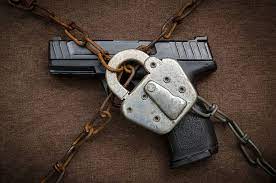Review Submit: The Ethic Controversies and Solutions of Arms Sales and the Global Arms Trade
Unpacking Controversies and Solutions
Understanding the Global Arms Trade: The global arms trade involves the sale, transfer, and exchange of military weapons and technology between countries and private entities. Major exporters include the United States, Russia, China, France, and Germany, which collectively dominate the market. These transactions are often justified on grounds of national security and economic benefits. However, the opaque nature of many deals and the often questionable end-use of these weapons raise significant ethical concerns.
Human Rights Violations:
- Arms sold to countries with poor human rights records can be used to suppress dissent, commit war crimes, and perpetrate violence against civilians. High-profile cases include the use of Western-supplied arms in the Yemeni conflict, where weapons have reportedly been used in attacks on civilian targets.
Destabilization and Conflict:
- The influx of weapons into conflict zones can escalate violence and prolong conflicts. For example, the Syrian civil war has seen a diverse range of arms from various international suppliers, complicating peace efforts and contributing to widespread destruction and displacement.
Economic Prioritization:
- The economic benefits of arms sales often overshadow ethical considerations. Countries may prioritize lucrative arms deals over the potential consequences, leading to sales that support authoritarian regimes or exacerbate regional tensions.
Transparency and Accountability:
- Many arms deals lack transparency, making it difficult to hold exporters and recipients accountable for the end-use of weapons. This secrecy can facilitate corruption and the diversion of arms to unintended actors, including terrorist organizations.
Impact on Global Inequality: The arms trade can perpetuate global inequality by enabling powerful countries to exert influence over less powerful nations through military means. It can also divert resources away from critical social and economic development needs in favor of military spending, further entrenching poverty and inequality.
Stricter Regulations and International Agreements:
- Strengthening international agreements like the Arms Trade Treaty (ATT) can help regulate the transfer of conventional arms, ensuring that sales are conducted in accordance with international law and human rights standards. These agreements should be enforced with rigorous compliance mechanisms and penalties for violations.
Enhanced Transparency and Monitoring:
- Governments and international bodies should mandate detailed reporting on arms sales and transfers. Independent monitoring and oversight can help ensure that weapons are used responsibly and not diverted to unlawful purposes. Public transparency can also enhance accountability and trust in the arms trade.
Ethical Guidelines and Conditional Sales:
- Establishing clear ethical guidelines for arms sales can ensure that transactions are conditional on the recipient’s adherence to human rights and conflict resolution principles. This approach can prevent the sale of arms to regimes with histories of human rights abuses or aggressive military policies.
Promoting Conflict Resolution and Development:
- Investing in conflict resolution and development initiatives can reduce the demand for arms by addressing the root causes of violence and instability. Supporting economic development, education, and governance reforms in conflict-prone regions can foster long-term stability and reduce reliance on military solutions.
Supporting Disarmament Initiatives:
- Global disarmament initiatives aimed at reducing the number of weapons in circulation can contribute to international peace and security. Encouraging countries to pursue diplomatic and peaceful solutions rather than military interventions can help mitigate the risks associated with the arms trade.
Corporate Responsibility and Ethical Investments:
- Arms manufacturers and investors should be held to higher ethical standards, with corporate responsibility measures that ensure compliance with international norms. Ethical investment frameworks can also guide financial institutions away from supporting companies involved in controversial arms deals.
- Case Studies:
The Yemen Conflict:
- The Yemen conflict has been a focal point for criticism of Western arms sales. Countries like the United States and the United Kingdom have faced scrutiny for supplying weapons to Saudi Arabia, which has been accused of committing war crimes in Yemen. Enhanced scrutiny and conditionality in arms sales could mitigate such ethical dilemmas.
The Syrian Civil War:
- The Syrian civil war illustrates the complexities of arms proliferation in a multi-faceted conflict. Arms from various international sources have found their way into the hands of both state and non-state actors, highlighting the need for stricter controls and monitoring to prevent weapons from exacerbating conflicts.
Arms Sales to Authoritarian Regimes:
- Arms sales to authoritarian regimes, such as those in Egypt and Saudi Arabia, have raised ethical questions about supporting governments that suppress dissent and commit human rights abuses. Establishing stricter guidelines and accountability measures can prevent the misuse of exported arms.
Conclusion: The ethics of arms sales and the global arms trade present a complex web of challenges that require concerted efforts to address. By implementing stricter regulations, enhancing transparency, establishing ethical guidelines, promoting conflict resolution, supporting disarmament, and fostering corporate responsibility, the international community can work towards a more accountable and ethical arms trade. Navigating these controversies with a focus on human rights, global stability, and ethical governance can contribute to a safer and more just world.










Comments
Post a Comment